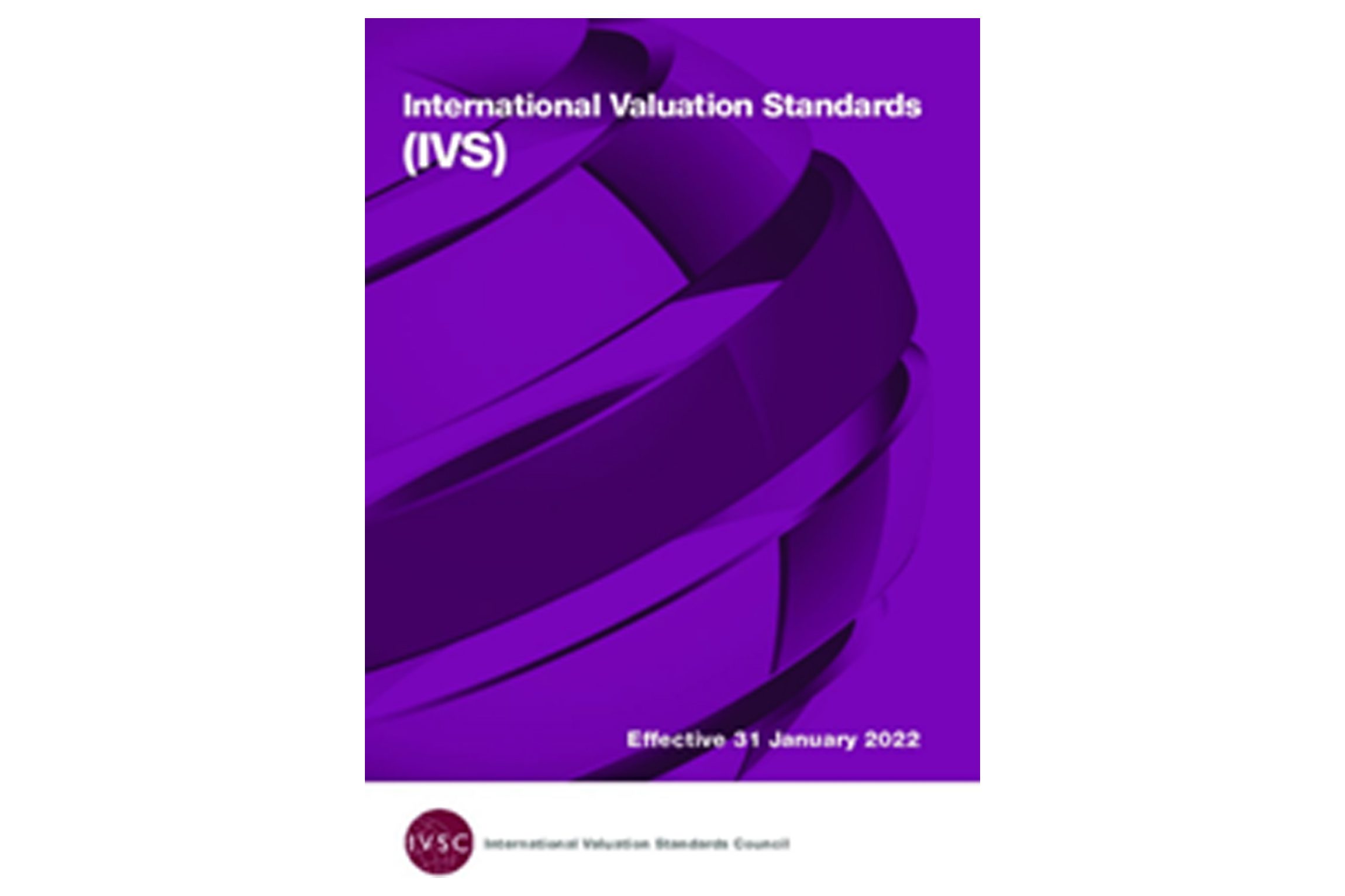The latest edition of the International Valuation Standards (IVS) marks an important milestone ..
The latest edition of the International Valuation Standards (IVS) marks an important milestone towards harmonizing valuation practice worldwide. IVS serve as the key guide for valuation professionals globally and will…
The latest edition of the International Valuation Standards (IVS) marks an important milestone towards harmonising valuation practice worldwide.
IVS serve as the key guide for valuation professionals globally and will underpin consistency, transparency and confidence in valuations which are key to investment decisions, financial reporting and financial market stability.
The Standards were drafted by the IVSC’s independent technical boards and published following an extensive consultation process involving Valuation Profession Organisations, regulatory authorities, other standard setting organisations, valuation service providers, individual professionals, valuation end users and academics.
IVSC member and sponsor organizations are provided with digital copies of IVS. Non-members/sponsors can access IVS through the IVS Online portal.
The latest version of the Standards brings greater depth and clarity to the IVS, as recommended by member organization, including the major valuation and accounting firms and Valuation Professional Organizations.
Here are a few things you need to know about the latest version of IVS:
- Effective date: The latest IVS becomes effective from 31stJanuary 2022. However, the IVSC encourages early adoption from the date of publication. Valuers will need to make clear which edition of the IVS they are using when preparing a valuation report.
- New chapter: The updated IVS includes a new chapter, ‘IVS 230 Inventory’ as part of the intangible asset standards.
- Technical revisions: Updates also include the technical revisions consulted on throughout 2020 and 2021.
- Introduction: the introduction has been revised to incorporate the core principles of valuation standard setting and the core principles of valuation. This change also reflects the IVSC’s ongoing efforts to align valuation standards.
- Glossary: The IVS glossary has been updated to include new terms and to provide additional clarifications. This change also reflects the IVSC’s ongoing efforts to align valuation terminology and definitions.
- IVS Framework: the sections on ‘compliance with standards’, ‘assets and liabilities’, ‘valuer’ and competence have been slightly revised to provide additional clarifications.
- IVS 104: a new section on “allocation of value” has been included within this chapter.
- IVS 105: the introduction has been revised to provide additional clarification that one or valuation approach may be used to arrive at the value reported within a basis of value.
- IVS 200: the introduction has been revised to provide further clarification on what constitutes a business and a business interest.
- IVS 400: the introduction has been revised to provide additional clarification that this chapter includes the valuation of agriculture and land and to incorporate the valuation of unregistered and communal land.
A ‘red-line’ version of the updated IVS is also available for download, providing clarity on changes from IVS (effective 31 January 2020).
Why have these changes been made? The Standards Review Board expects to publish a ‘Basis of Conclusions’ document, explaining the rationale for all updates to IVS, within the coming weeks. This will be available through the IVS Online portal and on the Members’ section of the IVSC website. A digital copy will be sent out to all Member and Sponsor organizations. Translations: IVS is published by the IVSC in English. Translations of IVS are carried out by organizations including Valuation Professional Organizations and regulatory authorities. The IVSC will be working with these entities to support updates to existing translations, which are available through the IVSC Members’ Portal.
What do the International Valuation Standards cover?
IVS comprises five ‘General Standards’ and eight ‘Asset-specific Standards’. The General Standards set requirements for the conduct of all valuation assignments including establishing the terms of a valuation engagement, bases of value, valuation approaches and methods, and reporting.
The Asset Standards include requirements related to specific types of asset valuation, including background information on the characteristics of each asset type that influence value and additional asset-specific requirements regarding common valuation approaches and methods used. The assets standards cover:
- Businesses and Business Interests (IVS 200)
- Intangible Assets (IVS 210)
- Non-Financial Instruments (IVS 220)
- Inventory (230)
- Plant and Equipment (IVS 300)
- Real Property Interests (IVS 400)
- Development Property (IVS 410)
- Financial Instruments (IVS 500)
The latest version of the Standards bring greater depth to the IVS, as recommended by member organization, including the major accountancy firms and Valuation Professional Organizations.
Source: www.ivsc.org

